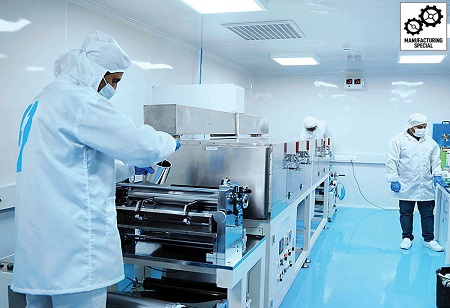
At its Day Zero event on Friday, Log9 Materials, a Bengaluru-based battery-technology startup, announced the launch of the country's first commercial lithium-ion cell manufacturing facility.
While many of the parts for electric vehicles are sourced locally, one of the most important components of an EV, the battery pack, is currently imported from other countries.
The new facility will support the production of large-form cylindrical cells ranging from 22 series to 66 series, which will be used in various vehicles.
"Our cells are designed from the ground up in India, for India; to suit Indian operating conditions, climate, and customers," said Dr. Akshay Singhal, co-founder and CEO of Log9 Materials. According to Singhal, made-in-India battery cells could increase the value of localised components by up to 90%. Furthermore, he stated that the market is large enough that any competition in this segment is welcome. He stated that Log9 alone could not meet the needs of the entire market.
Log9 has claimed that the cells produced by the company have improved energy densities, shorter processing times, and reduced efficiency losses. The company has claimed that It has been able to cut down the processing time by 40%, required equipment by 35%, and cut down the cost per kWh by 6%.
The company’s current production capacity stands at 50MWh per year. During the first year, the company will start a pilot program to test its battery cells and supply them to its OEM partners.
Aside from the cell manufacturing facility, the company also announced the release of Chervik, its custom battery management system (BMS). According to the company, the indigenously developed BMS provides high safety and reliability for high-power applications.
Charvik claims that by combining the electronic voltage controller (EVC), telematics, the slave BMS, and the vehicle control unit (VCU) on a single motherboard, it will simplify packaging.
According to the company, this technology allows the cells to charge quickly (5 to 45 minutes), quickly (45 to 90 minutes), and slowly (over 90 minutes).
Ola Electric unveiled its first indigenous battery cell in July last year and announced plans to manufacture it locally in India by 2023. The company has been allotted a capacity of 20GWh under the ACC PLI scheme by the government, and the cell manufacturing facility is currently in the works. The company said it would hire around 500 engineers and PhDs.

